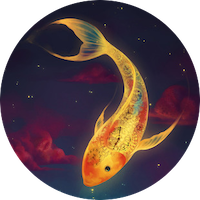In a world where external approval is more than ever a driving factor for many people, authenticity has become one of the most valued qualities of our times. That may be the reason why its concept has received a significant amount of attention recently. A science of authenticity has even come to be newly with countless publications and conferences about the topic. However, as the discussion about authenticity has been under the spotlight lately, the basic foundations about it appeared to be overturned.
Authenticity is defined as the degree to which an individual’s actions are consistent with his/her beliefs and desires, despite external pressures. Part of being authentic is standing up for what we believe in and speaking the truth as it seems to us, even if it is not what others want to hear. Many define it as being true to ourselves.
Nevertheless, this notion of being true to ourselves has become somehow confusing. Some argue that adhering to one’s true self can make us rigid, thus limiting us and hindering our growth since we will tend to stick only with our chosen beliefs, attitudes and values, leaving us in a zone that is comfortable to us. Others argue that being congruent with our emotional and psychological states, despite what they may be, is unrealistic if we take into account the various situations and social roles in our lives; and being utterly transparent, disclosing every single thought and feeling, is impossible in a pragmatic world.
However, I think our personalities are far more complex than that to affirm that authenticity is to act only in accord with what we think is our actual nature. As Katrina Jongman-Sereno and Mark Leary state we are multifaceted, we are subject to change undergoing every single moment, which conflicts with the concept of a unitary true self to be a useful standard for assessing authenticity, either in oneself or in others.
It appears to me that authenticity has nothing to do with closing ourselves to our own beliefs, nor lacking the emotional intelligence to congruently communicate what we think and much less not having the capacity to adapt to the different contexts of our lives.
Authenticity, for me, is all about being open to an ongoing process of discovery. It is about being self-aware and having the courage to take responsibility of our whole self despite the situation we are facing, holding the integrity and honesty with our chosen values and goals.
Authenticity could be as elusive as it is powerful, so it is worth daring to be authentic.

